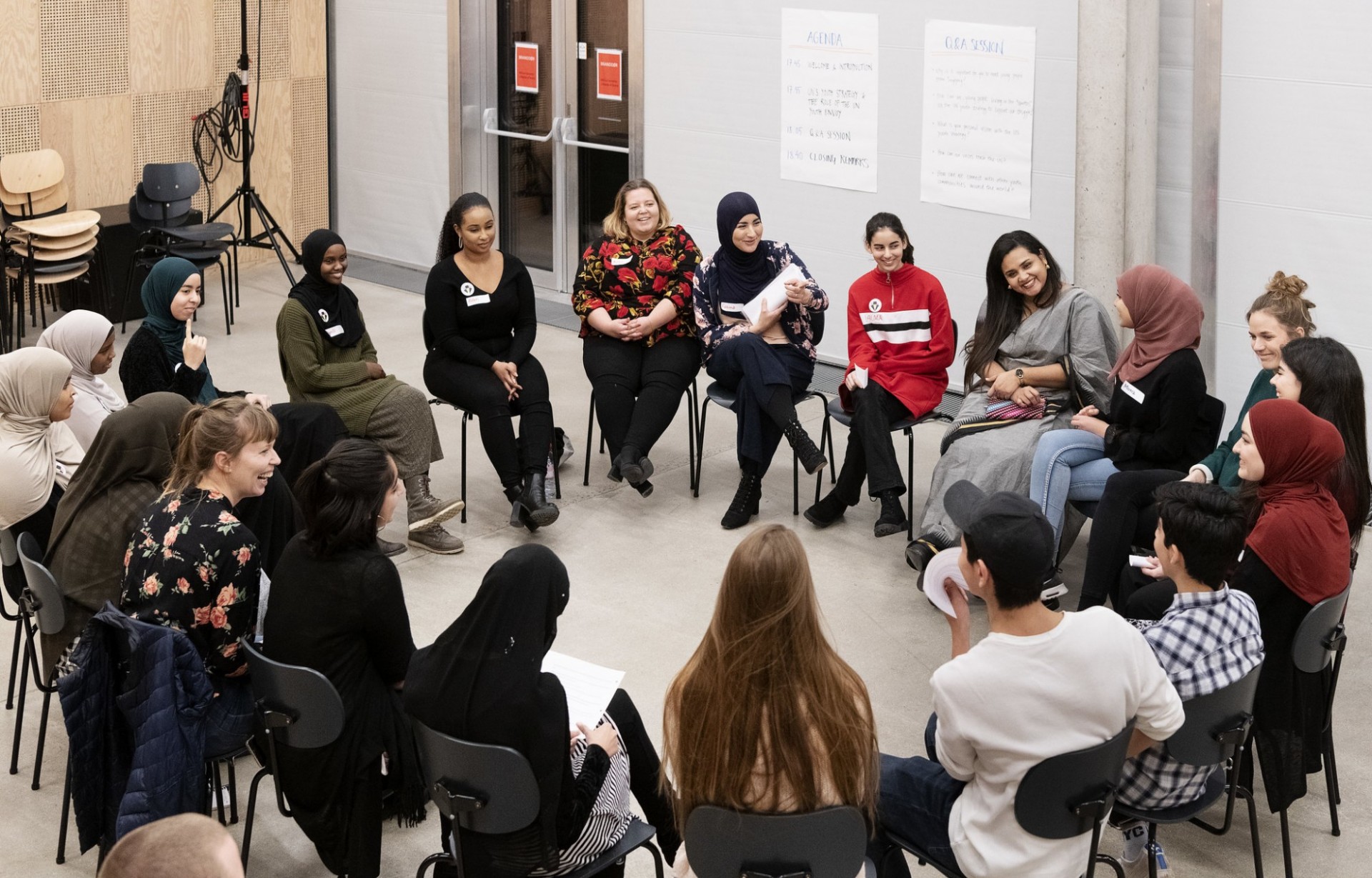
I stumbled upon a TikTok the other day in which a young gender equality activist stated that “Millennials want to get a seat at the table and Generation Z want to flip the table.” And it got me thinking. From the Fridays for Future protests, where millions of young people around the world have been holding governments and businesses accountable to take real action against the climate crisis, to the #BlackLivesMatter movement, powered by young people’s enduring commitment to challenging the status quo and dismantling systems of inequality, we are seeing a fundamental shift in the way today’s young generations understand power. Here is what we need to understand and how the UN’s first-ever systemwide Youth Strategy, Youth2030, promotes giving meaningful youth voices for a more equitable world for all generations.
For centuries, power was something exclusive. It was something limited to a small number of people (usually older, white men) and something that was held on to tightly and exercised in secrecy behind closed doors. Power was hierarchical, bureaucratic, formal and institutional. It was a precious and scarce commodity, so it was never shared.
But today, the majority of young people I have met perceive power as something entirely different. Growing up in an age of social media, connecting and mobilizing change with people from across the world has led today’s youth to believe in peer-driven leadership. With an ability to create change with a single click from anywhere, young people recognize the influence of equitable access. Witnessing global issues that require multi-stakeholder solutions, young people understand the strength in diversity. For this generation of young people, power is interconnected, inclusive, transparent and ultimately disruptive of the status quo.
This disparity in how different generations perceive power is further fueled by polarizing politics. The topics that matter to today’s youth are either seldom on the agenda of traditional political institutions or fail to meaningfully engage youth in their implementation. This leads to a growing mistrust in political institutions and a sense of alienation from elected leaders. Simply put, many young people feel trapped in a system that they did not create and have no say in, but that impacts them the most. When young people are forced to rely on older adults for equal opportunity and equal access to their fundamental human rights and decision-making, a power imbalance is created.
This, of course, is nothing new. Stereotypes of young people as “adults in training” have existed for centuries, being further heightened by gender, socio-economic, and cultural perspectives. So, when young people co-create our shared futures, “how” they engage is as important as “why” and “what” they engage in. True meaningful youth engagement rests on a genuine understanding of this balance of power.
Creating a true balance of power means not only addressing explicit policies and laws but also the intrinsic cultural beliefs and norms that marginalize the young. In this world, youth co-create the agenda and co-run the meeting. It’s about intergenerational cooperation, sharing power, and not about putting generations in constant opposition. No longer a passive recipient of another group’s leadership, here we all have an inalienable right to participate.
Youth engagement in institutions catalyzes this type of shared power, defined by co-ownership, we can create meaningful youth engagement and meaningful adult engagement. If we truly want to bridge this mistrust and build a better future for all, we need to listen to and work with young people as full-fledged partners, recognizing them as experts in their own right and co-architects of our shared future. However, recognizing that “youth” is not a homogenous group is paramount. Meaningful youth engagement should accommodate young people in all their diversity, including and especially the most marginalized youth, including young women and girls, indigenous young people, LGBTIQ+ youth, young people with disabilities, and neurodiverse youth, among others.
Youth2030, the UN’s first-ever systemwide Youth Strategy, works towards a world in which the human rights of every young person are realized, ensuring every young person is empowered to achieve their full potential, and recognizing young people’s agency, resilience and their positive contributions as agents of change. Young people have been involved throughout the Strategy’s inception, design and, now, its implementation. Members of the key constituencies representing youth at the UN participate at the highest level of governance and co-lead the task-teams that are driving the implementation.
Young people have been invisible players for far too long. Working behind the scenes, selflessly, voluntarily, motivated only by cause. Their participation is often considered demanding while their struggles and experiences are dismissed. Youthful traits such as exuberance, passion and optimism are sold as the only valuable incentives to involve young people, while distracting attention from the fact that the most valued incentive of all, their basic human right to participate in public affairs, is lost by not meaningfully engaging young people.
When young people of today have the opportunity to share power, they are more likely to ensure young people of tomorrow have the opportunity to share power, thus, breaking down barriers and breaking the cycle of marginalizing younger generations.
It is time to share power because doing so will not only empower the young people of today, but older people and future generations as well.
About the Authors:
Jayathma Wickramanayake serves as the UN Secretary-General’s Envoy on Youth. She is a representative of and advisor to the Secretary-General and the youngest Senior Official ever to be appointed by the UN. She has been recognized as TIME100 Next 2019: Rising Stars Shaping the Future and Forbes 30 Under 30 class of 2020. You can follow her on Twitter @UNYouthEnvoy and @jayathmadw.
Bianca Herzog and Maanishaa Jessani work for the UN Office of the Secretary-General’s Envoy on Youth. You can follow Bianca on Twitter at @blherzog and Maanishaa at @NeeshLogs.
The views and opinions expressed in this think-piece are those of the authors and do not necessarily reflect the official policy or position of SIPA or Columbia University.
